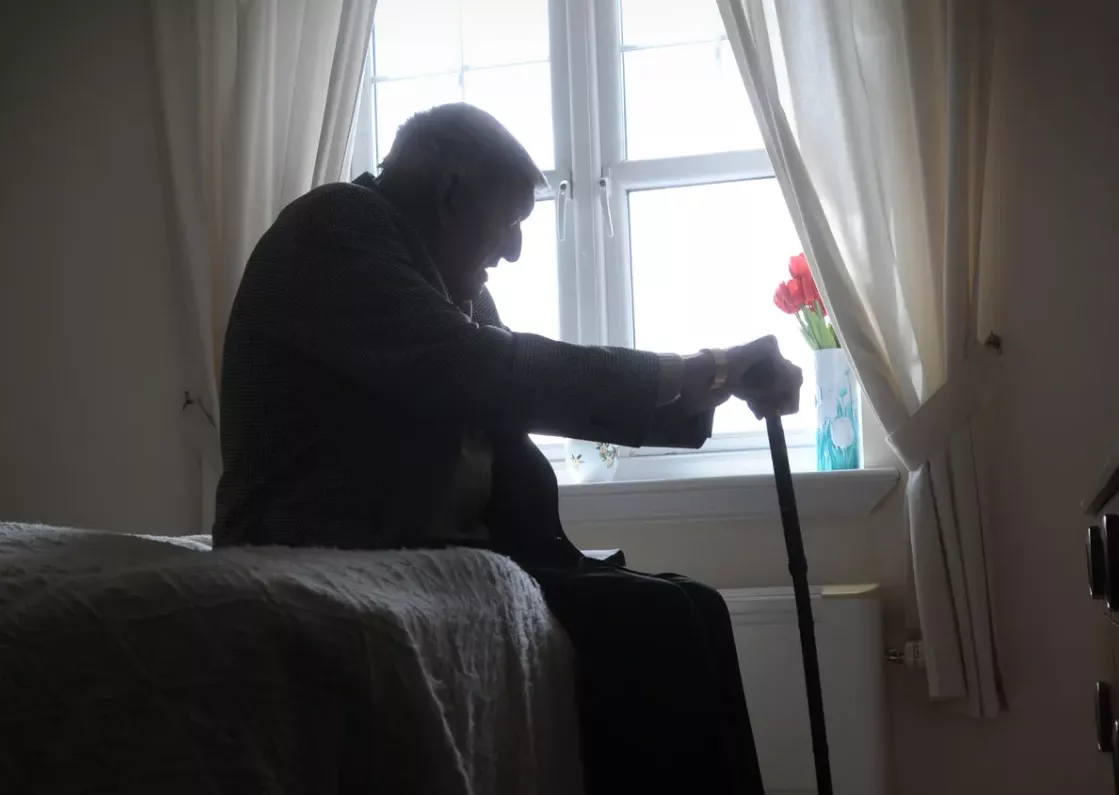Not seeing loved ones at least once a month and living alone significantly increases people’s risk of dying, academics at the University of Glasgow have found. The Guardian has more.
Using data from the U.K. Biobank study, a long-term study tracking the health and genetics of adults across the U.K., the authors looked at five different kinds of social connection reported by 458,146 people with an average age of 57 and then followed them for an average of 12.6 years. They found that each form of social isolation, such as living alone, often feeling lonely, or infrequent visits from friends or family, was linked to a higher risk of dying.
People who were never visited by friends or family were 53% more likely to die from cardiovascular disease and had a 39% increased risk of death compared with those who were visited daily. Those who lived alone were 48% more likely to die from cardiovascular disease, while not being able to confide in someone or take part in activities also increased mortality risk.
Those experiencing more than one form of social isolation were at an even higher risk. People who lived alone and never saw friends or family had a 77% higher risk of dying from any cause and an even higher risk of dying from heart disease or stroke, compared with those living with someone who saw friends or family daily, the study calculated.
But even visiting just once a month could reduce this risk, the researchers concluded. The study, published in the journal BMC Medicine, calculated that people who received friend or family visits on at least a monthly basis had a significantly lower risk of dying, suggesting that there was potentially a protective effect from this social interaction.
“The risk seems to be [among] people who are very isolated, and never ever see friends and family or see them less frequently than once a month,” said the study’s co-author Jason Gill, Professor of Cardiometabolic Health at the University of Glasgow.
“Ensuring that you visit your lonely and isolated relatives is a super helpful thing to do because it seems to be important that people have a visit at least once a month.”
The study did not examine why social isolation and loneliness increased mortality risk, but its lead author, Dr. Hamish Foster, a clinical research fellow in general practice and primary care at the University of Glasgow, said: “It could be that people who are more socially isolated may have some more unhealthy behaviours like smoking or high alcohol intake, for example.” He also suggested that not having someone to help take them to the doctor or encouraging them to seek help when needed, as well as direct biological effects on the immune system, could be factors.
The Guardian report fails to make the obvious link to the impact of lockdowns on mortality. But its sidebar does seem to be onto it, suggesting an article entitled ‘“Socially stunted”: how Covid pandemic aggravated young people’s loneliness‘ to read next.
Worth reading in full.













To join in with the discussion please make a donation to The Daily Sceptic.
Profanity and abuse will be removed and may lead to a permanent ban.
How proud the author of the study must be with his breakthrough discovery. Nobody would have known.
Instead of researching and publishing pointless studies about things that are so bleedingly obvious, why don’t they do some actually useful work. Like investigate the current levels of excess deaths in an honest and in depth manner?
I take your point Stewart but I suppose on the positive side it does provide a robust response to any half-wit spouting in favour of past or potentially forthcoming lockdowns.
https://www.conservativewoman.co.uk/ireland-surrenders-to-autism/
Meanwhile at the other end of the lifetime scale we have this:
Last year the Cork Independent reported: figures published this year by the [Ireland] Department of Health reveal that 14,000 children between the ages of four and 15 have an autism diagnosis – around 4.7 per cent of the school population. This is four times higher than the figure of just 1.2 per cent ten years ago.’
That percentage means that one in every 21 schoolchildren, one in every 13 boys has autism in Ireland.
Dressing it up as ‘inclusivity’ and ‘neurodiversity’ and being ‘autism friendly’ does nothing to delay the inevitable. Autism will bury Ireland with the cost and services needed for all these children throughout their lives.
Now this makes grim reading and nobody is interested in the cause. Perhaps it has something to do with all the “vaccines” pumped in to young children before they reach double figures. No surely not. Big Pharma growing its future income streams?
Still, it all helps reach the inclusivity target.
Thanks for putting some numbers around a familiar truism. They are more extreme than I had expected.
In other news, study finds that water is wet and the sun rises in the east.
Something wise in the G? Or are there some academics in Glasgow short of things to do? Pretending that the obvious is a new discovery is near enough fraud, if it results in revenue.
You are all missing the point; why do all these children have autism? Of course we don’t know, but it is a significant change in human behaviour. It is a serious condition (my wife says I have it) but I an 68 and have done well in life. But really someone should be looking at why, and I admit having had difficulty writing properly and inventing stories at the start of senior school. This didn’t stop me getting patents and success in my work, but then why didn’t everyone else I worked with? Some did, some of the others thought we were odd. Perhaps, but odd comes in a lot of flavours. BTW, I still cannot write stories!
Autism covers a huge gap from the children who will never live an independent life to LOTO who prepares his weekly questions from a script, so much so that when Boris actually told him he was right, he still went on to argue the question because he had not been able to factor in the actual reply, let alone listen to it.